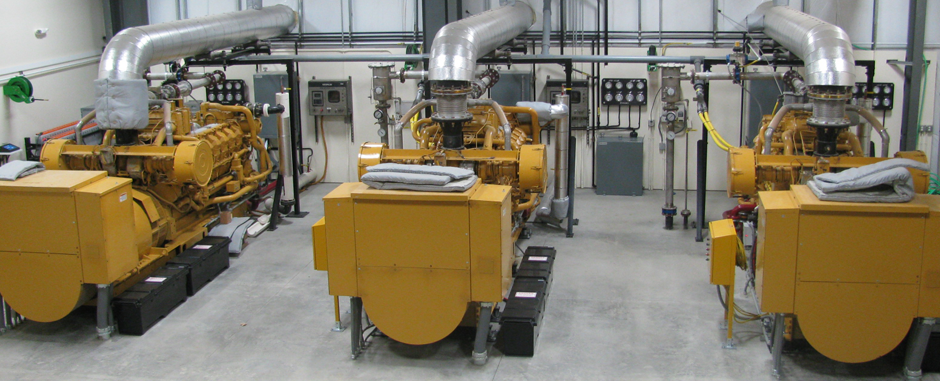Develop New Power Purchase Agreement
A power purchase agreement (PPA) is a contract between a renewable energy generator and purchaser that defines all the business terms of the agreement between the parties. If continuing to sell electricity to the existing buyer is desired, the landfill gas (LFG) electricity project owner may want to renegotiate their PPA. Consulting firms can provide services in this area, if needed.
Criteria:
- In regulated states*, power would need to be sold to a utility.
- In states with competitive power markets*, power could be sold to a commercial or municipal customer or a wholesale electricity buyer.
Pros:
- Some purchasers may prefer a common source for electricity and renewable energy certificates (RECs) to meet internal greenhouse gas reduction or renewable energy goals.
- In 2021, more than 600 off-takers obtained about 73 million megawatt-hours of voluntary green power through PPAs and retained the RECs, a 23 percent growth over 2020.1
- A new PPA offers an opportunity to have more favorable pricing or other terms with a new buyer who may have differing priorities from the original buyer.
Cons:
- Many utilities have met their renewable portfolio standard (RPS) obligations and/or the state RPS favors other types of renewables, so utilities are not willing to pay premiums for LFG electricity.
Economic Considerations:
- More time and money may need to be invested when starting over with a new buyer and new PPA.
More Information:
- State Renewable Energy Resources, EPA’s Energy Resources for State, Local, and Tribal Governments
- Physical PPA, EPA Green Power Partnership Program
- Renewable Energy Projects: Negotiating Power Purchase Agreements (webinar), Strafford
- Financing Municipal Renewable Energy Projects: Negotiating Power Purchase Agreements for Municipalities (webinar), Strafford
*A state’s electricity market status can impact which options a biogas generator has to sell its electricity. Agreements with utilities could differ in length and price as compared to agreements made directly with the electricity purchasers.
- Regulated states – For biogas generators located in regulated states, utilities are the only permitted buyer of the power. Therefore, the biogas generator has two options in selling its product(s):
- Sell the project’s power and associated RECs to its utility under a PPA.
- Sell the project’s power to its utility under a PPA and sell the RECs to a REC marketer and REC buyer under a separate contract.
- Deregulated or Competitive states – In competitive electricity markets, the biogas generator can sell its power to any buyer (utility, competitive electricity supplier, corporate or institutional purchaser) located in the competitive retail electricity markets. Deal structures could include:
- Sell the project’s power and associated RECs to an energy supplier or corporate purchaser under a physical PPA.
- Sell the project’s power under a PPA and as a separate deal sell the project RECs.
- Sell the project’s power and associated RECs to a corporate purchaser under a virtual PPA (VPPA). With a VPPA, the buyer can be located anywhere in the United States since they are not taking physical delivery of the power.
- Contracts for electricity directly between the renewable energy generator and entity purchasing the power are allowed, or the renewable energy generator would contract with competitive power suppliers.
- All Areas – Regardless of how the power market is structured (regulated or competitive), projects in all states can sell RECs as a stand-alone product, “unbundled” from the organization’s electricity use of sales.
For more information on regulated and deregulated states:
- EPA Green Power Partnership Program
- Quick Electricity
References
1 Heeter, Jenny. U.S. Department of Energy. National Renewable Energy Laboratory. Status and Trends in the Voluntary Market (2021 data). September 15, 2022. https://www.nrel.gov/docs/fy23osti/84419.pdf.
2 U.S. EPA. LMOP Landfill and Landfill Gas Energy Project Database. July 2021. https://www.epa.gov/lmop/lmop-landfill-and-project-database.
3 Western Placer Waste Management Authority. About WPWMA webpage. Previously available at https://www.wpwma.ca.gov/about-wpwma/. Accessed December 17, 2021.
4 Energy 2001, Inc. Record of Results webpage. https://energy2001.com/about-us/record-of-results/ . Accessed December 17, 2021.
5 Rasmussen, Laura. Energy 2001, Inc. Email correspondence. October 11, 2021; October 12, 2021; October 16, 2021.

